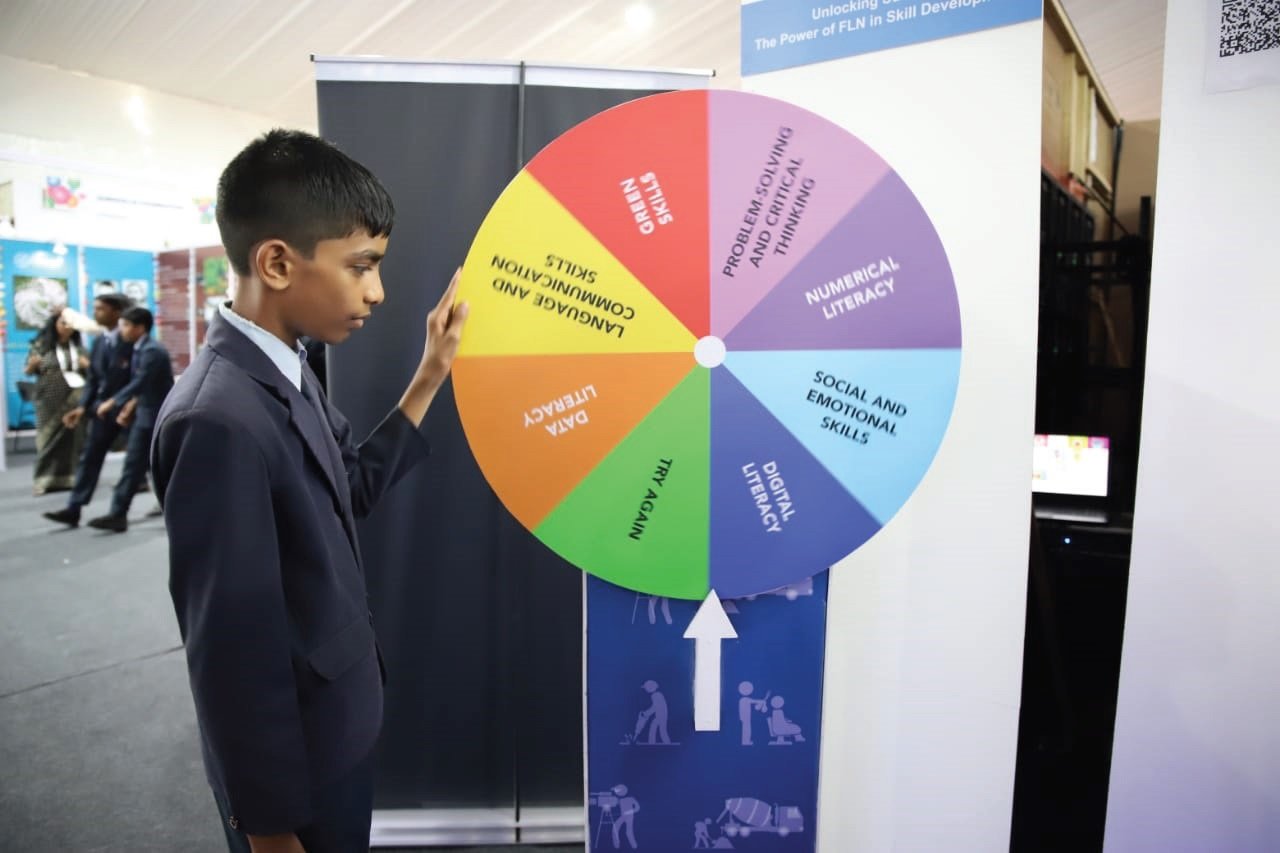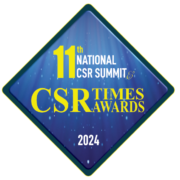
By 2030, the United Nations hopes that all countries should ensure all learners acquire the knowledge and skills needed to promote sustainable development, including, among others, through education for sustainable development and sustainable lifestyles, human rights, gender equality, promotion of a culture of peace and non-violence, global citizenship and appreciation of cultural diversity and culture’s contribution to sustainable development.
Obtaining a quality education is the foundation for improving people’s lives and sustainable development. Major progress has been made towards increasing access to education at all levels and increasing enrolment rates in schools, particularly for women and girls. Basic literacy skills have improved tremendously, yet bolder efforts are needed to make even greater strides in achieving universal education goals. For example, the world has achieved equality in primary education between girls and boys, but few countries have achieved that target at all levels of education.
Education liberates the intellect, unlocks the imagination and is fundamental for self-respect. It is the key to prosperity and opens opportunities, enabling us to contribute to a progressive, healthy society. Learning benefits every human being and should be available to all. According to the Global Citizenship Foundation, Global Citizenship Education (GCED) can be defined as a transformative, lifelong pursuit that involves both curricular learning and practical experience to shape a mindset to care for humanity and the planet and to equip individuals with global competencies to undertake responsible actions aimed at forging more just, peaceful, secure, sustainable, tolerant and inclusive societies.

GCED is an educational approach that helps individuals develop the skills, knowledge, and values they need to become active, responsible, and responsive citizens who contribute to building more peaceful, just, and sustainable societies.
The Ban Ki-moon Centre In addition to advocating for the achievement of SDG 4.7 at global, national, and local levels, Mission 4.7 also aims to curate and create relevant educational resources and curricula, push countries for greater investments in quality education, and identify ways to train and support educators around the world.
It is a key member of Mission 4.7, which is an initiative that seeks to mobilize global expertise to support governments and other major policy stakeholders in the implementation of the UNESCO ESD for 2030 Roadmap, the UNESCO Greening Education Partnership, as well as other UNESCO workstreams on SDG 4.7.
With the deadline for the Education 2030 Agenda approaching, it is crucial to accelerate the implementation of Education for Sustainable Development to deliver all 17 Sustainable Development Goals. To support Member States in implementing the UNESCO Framework for the implementation of Education for Sustainable Development (ESD) beyond 2019 and its Roadmap and to follow up on the Berlin Declaration on Education to Sustainable Development (May 2021), UNESCO is establishing the new ESD for 2030 Global Network. Ban Ki-moon is a South Korean diplomat who was the eighth Secretary-General of the United Nations (UNSG) from January 2007 to December 2016.
Recently, the Global Engagement & Empowerment Forum on Sustainable Development (GEEF), co-hosted by the Institute for Global Engagement & Empowerment (IGEE) and the Ban Ki-moon Centre for Global Citizens, is an annual international event where various stakeholders, including global leaders, experts, and youth, convene to collaborate towards accomplishing the United Nations’ 2030 Agenda for Sustainable Development. Building upon UNESCO’s worldwide community of practice on ESD, which was forged out of the Decade of Education for Sustainable Development in 2005, the Network aims to create synergy among members and foster cross-sectoral collaboration to support the implementation of ESD nationally, regionally, and globally.

The platform provides opportunities for exchange and collaboration among education authorities and professionals, youth, researchers, etc., through activities structured around the following objectives:
- Promising practices, knowledge sharing and mutual learning
- Global advocacy and policymaking
- Collaboration and partnerships
- Monitoring and evaluation Go a l 4 of Sustainability Development Goals (SDGs) aims to ensure inclusive and equitable quality education and promote lifelong learning opportunities for all. This goal supports the reduction of disparities and inequities in education, both in terms of access and quality. It recognizes the need to provide quality education for all, and most especially vulnerable populations, including poor children, children living in rural areas, persons with disabilities, indigenous people and refugee children.
This goal is critically important because of its transformative effects on the other SDGs. Sustainable development hinges on every child receiving a quality education. When children are offered the tools to develop to their full potential, they become productive adults ready to give back to their communities and break the cycle of poverty. Education enables upward socioeconomic mobility.
Significant progress was achieved during the last decade in increasing access to education and school enrolment rates at all levels, particularly for girls. Despite these gains, about 260 million children were out of school in 2018, nearly one-fifth of the global population in that age group. Furthermore, more than half of all children and adolescents worldwide fail to meet minimum proficiency standards in reading and mathematics.
UNICEF’s contribution towards this goal centres on equity and inclusion to provide all children with quality learning opportunities and skills development programmes from early childhood through adolescence. UNICEF works with governments worldwide to raise the quality and inclusiveness of schools. UNICEF is the custodian for global monitoring of Indicator 4.2.1 Percentage of children (aged 24–59 months) developmentally on track in at least 3 of the four following domains: literacy-numeracy, physical, socio-emotional and learning. In India, NITI Aayog has continuously endeavoured to evolve national indices that chart the pathway to an inclusive, sustainable, and prosperous tomorrow. The NITI Aayog aims to drive tangible policy improvements towards achieving quality education coherently and collaboratively.
The School Education Quality Index (SEQI) has been developed to provide insights and data-based feedback on the success of school education across the States and Union Territories of India. The index offers a platform for promoting evidence-based policymaking and highlights possible course corrections in the education sector.
While the Right to Education Act ensured access to education for all children, there is a need to improve education and service delivery. Data from assessments such as the National Achievement Survey and the Annual Status of Education Report reinforces the need for system-level interventions across the school education system to improve gradelevel competency and ensure that India’s schooling system delivers on learning outcomes.
The measurement of qualityrelated education outcomes is imperative for incentivising States and Union Territories to improve the performance of their school systems. Initiatives of the NITI Aayog, such as the Sustainable Action for Transforming Human Capital – Education (SATH-E), further emphasise the need for innovative policy design customised to the unique needs of the States.
Project SATH-E, ‘Sustainable Action for Transforming Human Capital-Education’, was launched in 2017 to identify and build three ‘role model’ States for the school education sector. After an elaborate selection process, Jharkhand, Odisha and Madhya Pradesh were chosen. The first phase of SATH-E was completed in March 2020. Significant strides were made in learning enhancement programmes (remediation), governance reforms, teacher training, recruitment, assessment and accountability, school consolidation, IT-enabled monitoring of schools, and coaching of academic coordinators (BRCs/CRCs), among others.

A few of the achievements are as follows:
- Learning enhancement programme/ remedial teaching with workbook support for approximately 2.3 crore students implemented.
- Academic monitoring of schools and students streamlined, with nearly 1.5 lakh inspections carried out every month.
- Comprehensive rewards and recognition programmes, including external certifications, were initiated.
- Assessment reforms, including spot testing and learning tracking formats, were introduced.
- Multiple rounds of teacher training were undertaken.
In Madhya Pradesh, 30% of the students moved from lower-level foundational literacy numeracy learning cohorts to the highest learning level for grades 3–8 in two years of the ‘Dakshta Unnayan learning enhancement programme. In Odisha, an average improvement of 10–15% was observed in learning outcomes due to the ‘Ujjwal- Utthan’ learning enhancement programme. In Jharkhand, a 12% improvement across most competencies was recorded through the ‘Gyan Setu’ learning enhancement programme.
With the onset of the COVID-19 pandemic, SATH-E adapted itself as ‘Digi-SATH’ to provide undeterred support via digital mediums. Under the Digi-SATH initiative, MP’s ‘Hamara Ghar Hamara Vidyalaya’ and ‘Digi-LEP’ (or ‘Digital Learning Enhancement Programme’), Odisha’s ‘Shiksha Sanjog’ and ‘Shiksha Sampark’ and Jharkhand’s ‘Hamara Doordarshan Hamara Vidyalaya’ have been providing online education and teacher training.



































